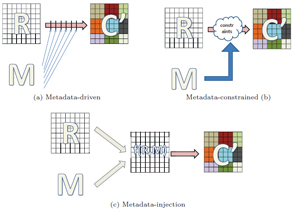Co-city
The collaborative management of urban commons to counteract poverty and socio-spatial polarisation
Co-city is winner of the first Urban Innovation Action Call of EU. It is a 5m€ project involving also Città di Torino and ANCI. The topic is supporting the creations of urban commons, using also technologies such as crowdmapping and blockchain. [2016-2019]
Role: scientific responsible of University of Torino’s unit.
More details here












